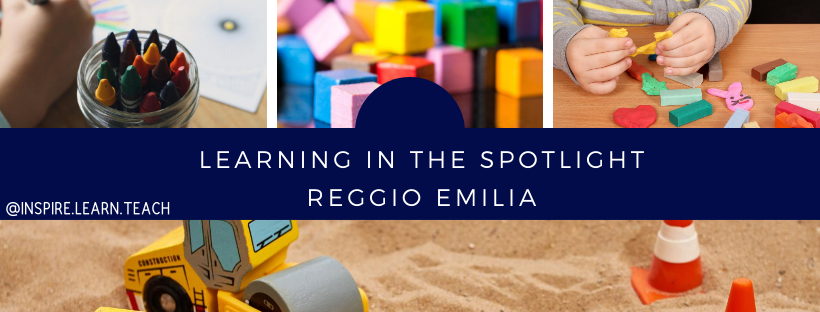Learning at home: Reggio Emilia
“Each child is unique and the protagonist of his or her own growth. Children desire to acquire knowledge, have much capacity for curiosity and amazement, and yearn to create relationships with others and communicate.”
Reggio Emilia is a region in Northern Italy and for years the city has been developing an educational system for young children through the collaboration of parents, teachers and the community under the guidance of Loris Malaguzzi. “The schools in Reggio Emilia … have grown out of a culture that values children, out of the interest commitment of a group of parents” – Neugebauer, 1994. So this isnt a set program, rather an approach that has developed with a community and has then spread in terms of ideas and principles.
This approach was developed to help inspire a love of learning by engaging their natural curiosity of the world around them. There is no rote learning nor memorisation, it’s just total immersion into a subject with all of the senses, co-constructing knowledge.
Key principles for the Reggio Emilia Home
The Reggio Emilia philosophy is based upon some key principles that guide how people interact with children. This is centred on respect for the child, allowing them to direct their learning in multiple ways and to be expressive individuals with endless possibilities.
The child has rights. Child have rights, not simply just needs. The child is views as competent, creative, curious and full of potential.
Active constructor of knowledge. Children as seen as having an innate desire to learn, discover and create a sense of their world. Children are not an object to be taught, rather they work alongside others in their discovery and construction of their knowledge, interweaving of Piaget’s construction of knowledge is evident here. Following the child here is critical as is building on their interests and passions.
Researcher. Children as natural researchers and learn through in-depth studies into a particular topic at a time. Think themes of learning and project-based learning, this is deeper than superficially adding sea animals to everything and calling it an underwater project, rather children explore, observe, question, discuss, hypothesize and revisit their initial thoughts to develop a new understanding, this more a project on temperature and exploring boiling points.
Social Beings. Children are seen to socially construct their understanding of the world through their relationships with others, drawing on the work of Vygotsky. This places an emphasis on communication and language as this is how to construct and share knowledge.
Environment as a teacher. The environment as a teacher using hands-on learning with opportunities to explore natural open-ended materials without a set goal, allowing the freedom and creativity to find multiple uses.
Parenting in the Reggio Emilia Home
Collaborator and co-learner. A partner in the learning process, where you learn hand in hand. When your toddler asks all the questions, feed their curiosity by examining and discovering the answers together. You don’t need to answer every question or be the expert on every topic.
Multiple ways to express. Varied presentation of knowledge ensures that you child has multiple opportunities to be exposed to and construct their knowledge. Consider exploring numbers through, cooking, measuring tapes, songs, in art and make numbers with playdough. But also think that children can express their knowledge in multiple ways, from music and art to movement or written work.
Communication. Talking with children rather than talking at them, asking questions that require them to answer in detail. Give them the chance to feel heard – making them feel like a valued member of the family. Talk to them and discover their passions.
Follow the child. Do what interests them, use this to guide your topics and dig deep into those passions.
Want more information?
Books
100 languages of children - this is quite pricey but this blog post breaks it down really clearly.
Research
The Reggio Emilia Australia Information Exchange (REAIE) is a national reference organisation for the educational project of Reggio Emilia in Australia
If you are more into academic articles I found this one, “Examining the Reggio Emilia Approach to Early Childhood Education” really helpful for understanding the basics of the approach.
Into history? This post on Reggio Children, breaks down the approached over time and how it has developed from a small part of Italy to be a international approach.
Social Media
Love some Pintrest ideas? I have set up a board and saving my favourites here.



